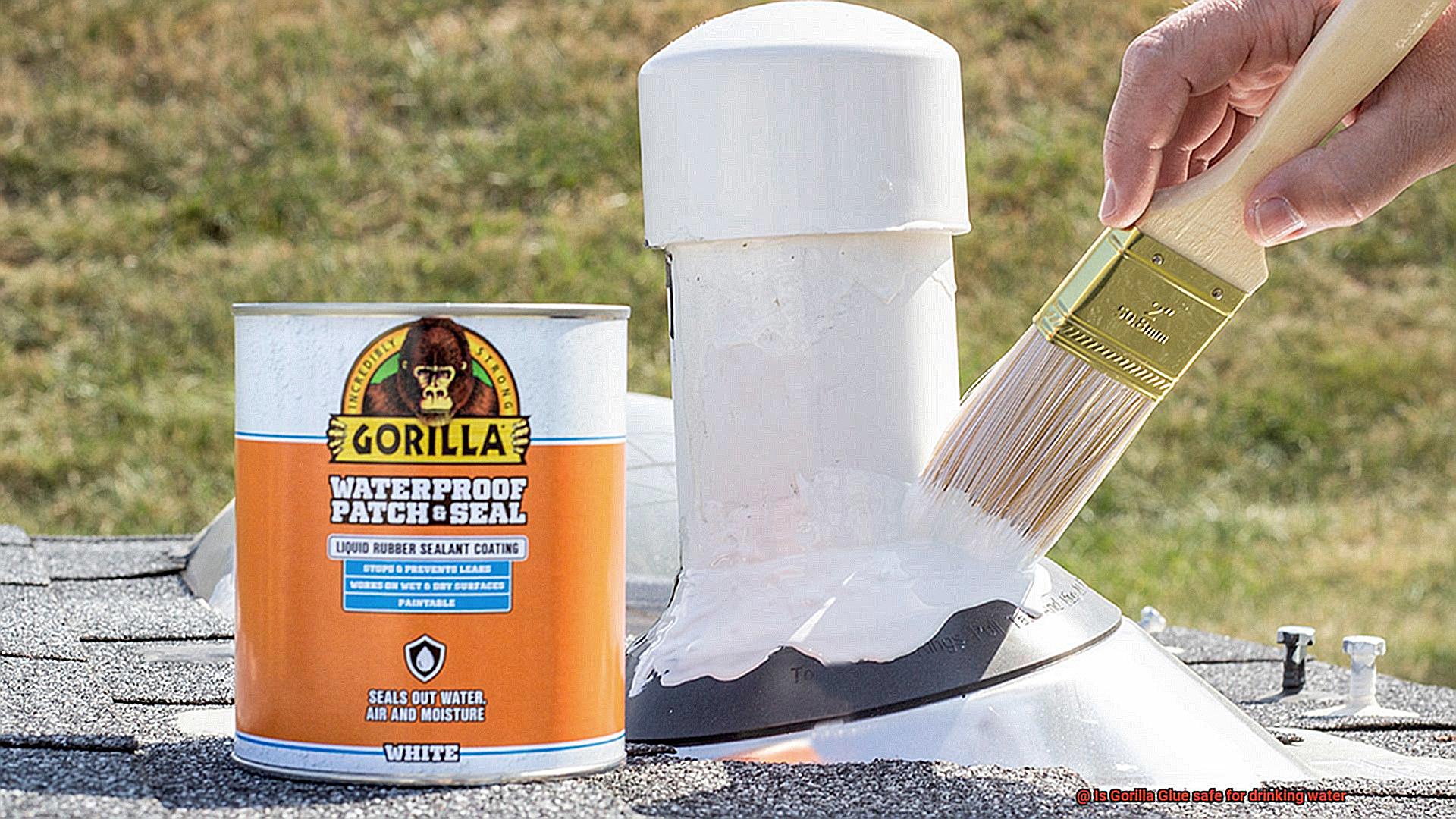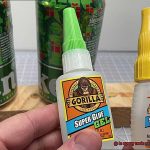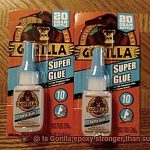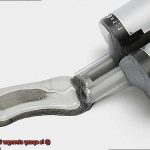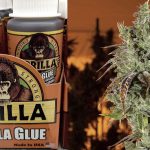Have you ever wondered if Gorilla Glue is safe to use in your drinking water system? It’s a common question that many people have asked themselves. After all, Gorilla Glue is known for its strength and versatility, but does that mean it’s safe to use in water-related applications? In this blog post, we’ll explore the safety of using Gorilla Glue in drinking water systems and give you all the information you need to make an informed decision.
To start with, let’s take a closer look at what Gorilla Glue actually is and how it works. This will help you understand the product and its capabilities better. Then we’ll dive into the potential risks and hazards associated with using Gorilla Glue in drinking water systems. We’ll talk about chemical leaching and contamination, as well as any regulations or safety standards that apply to plumbing adhesives like Gorilla Glue.
By the end of this post, you’ll be armed with all the knowledge you need to decide whether or not using Gorilla Glue in your drinking water system is a safe choice. So let’s get started.
Is Gorilla Glue Safe for Drinking Water?
Contents
- 1 Is Gorilla Glue Safe for Drinking Water?
- 2 What is Polyurethane and Why Does it Make Gorilla Glue Safe for Drinking Water?
- 3 Is Gorilla Glue Used in Plumbing Applications?
- 4 Are All Types of Gorilla Glue Suitable for Use with Drinking Water?
- 5 How Should Gorilla Glue be Applied to Ensure Safety with Drinking Water?
- 6 Potential Risks of Using the Wrong Type of Gorilla Glue with Drinking Water
- 7 Conclusion
While Gorilla Glue is a popular adhesive used for various purposes, including woodworking, metalworking, and construction, it is not recommended for use in situations where it will come into contact with drinking water.
Gorilla Glue is a polyurethane-based adhesive that cures when exposed to moisture. When it comes into contact with water, it expands and hardens, creating a strong bond. While this makes it an excellent adhesive for many applications, it is not suitable for use in drinking water applications due to several reasons.
One of the main concerns with using Gorilla Glue for drinking water applications is that it contains chemicals that could leach into the water and contaminate it. These chemicals include diisocyanates, known to cause respiratory problems and skin irritation. Additionally, Gorilla Glue is not FDA approved for use in food or drink applications. Therefore, using Gorilla Glue in such applications can pose significant health hazards.
Another concern with using Gorilla Glue in drinking water applications is its inability to withstand constant exposure to water over time. While it may create a strong bond initially, over time, the bond may weaken or break down entirely. This could lead to leaks or other issues that could contaminate the water.
To ensure safety and prevent contamination of drinking water, it is best to use adhesives specifically designed and approved for use in drinking water applications. Always read labels carefully before purchasing any adhesive and ensure that it is safe for use with drinking water.
What is Polyurethane and Why Does it Make Gorilla Glue Safe for Drinking Water?
Using it for drinking water applications was once not recommended due to harmful chemicals and weakening over time. Enter polyurethane, the game-changer that makes Gorilla Glue safe for drinking water. As an expert in this area, let me give you some insights.
Polyurethane is a polymer used in adhesives, foams, and coatings due to its exceptional resistance to water and other liquids. Its ability to cross-link when exposed to moisture creates a strong and durable bond between molecules, making it highly waterproof.
Gorilla Glue contains polyurethane as one of its key ingredients. When applied, polyurethane creates a strong bond that resists water and other liquids. This is because the polyurethane undergoes cross-linking, forming a waterproof seal between the surfaces being joined. This waterproof seal makes Gorilla Glue safe for use in situations where the adhesive will be exposed to water or other liquids.
Polyurethane’s non-toxic nature also makes it safe for use with drinking water. It does not release harmful chemicals into the environment, making it safe for human consumption. Gorilla Glue’s polyurethane content ensures that it does not contaminate drinking water, providing a safe solution for any DIY project or plumbing repair.
In conclusion, polyurethane plays a pivotal role in making Gorilla Glue safe for use with drinking water. Its unique chemical properties create a strong and durable bond that resists water and other liquids. Plus, its non-toxic nature makes it safe for human consumption.

So, next time you’re working on a plumbing repair or DIY project involving drinking water, reach for Gorilla Glue with confidence, knowing that polyurethane makes it safe for use.
Is Gorilla Glue Used in Plumbing Applications?
When it comes to choosing the right adhesive for your plumbing project, it’s essential to consider all options carefully. While Gorilla Glue may be a popular choice for various applications, not all Gorilla Glue products are suitable for plumbing.
Original Gorilla Glue is water-resistant and can handle some exposure to moisture; however, it is not recommended for use in plumbing applications where it may come into contact with drinking water. On the other hand, both Gorilla Super Glue and Gorilla Epoxy are explicitly labeled as not safe for direct or indirect food contact. Thus, they should not be used in any application where they may come into contact with drinking water or food.
It’s crucial to note that there are specialty adhesives available that are specifically designed for use in plumbing applications where they may come into contact with drinking water. These products undergo rigorous testing and certification by organizations such as the National Sanitation Foundation (NSF) to meet strict safety and performance standards.
Are All Types of Gorilla Glue Suitable for Use with Drinking Water?
Gorilla Glue is a popular adhesive used for various projects, but when it comes to using it with drinking water, caution must be exercised. The reason is that not all types of Gorilla Glue are suitable for this purpose. In this article, we will explore the differences between the various types of Gorilla Glue and why only certain ones are safe for use with drinking water.
The original Gorilla Glue, also known as polyurethane glue, is not safe for use with drinking water. This glue expands as it dries and can release toxic chemicals into the water. Therefore, it should never be used on any surface that will come into contact with food or drinks.
In contrast, Gorilla Super Glue and Gorilla Epoxy are safe for use with drinking water. Gorilla Super Glue is a fast-drying adhesive that forms a strong bond in seconds, making it ideal for small repairs and bonding plastic, wood, metal, ceramic, and more. Gorilla Epoxy is a two-part adhesive that sets in five minutes and achieves full cure in 24 hours. It is perfect for bonding glass, metal, ceramic, stone, and more.
It is worth noting that other types of Gorilla Glue, such as the Gorilla Wood Glue or the Gorilla Construction Adhesive, have not been approved for use in situations involving food or water contact. This is because they may contain certain chemicals or ingredients that could be harmful if ingested.
If you plan to use Gorilla Glue in a project involving drinking water, ensure you read the label of the product carefully before use. The approved types of Gorilla Glue for use with drinking water include the Gorilla Wood Glue, Gorilla Super Glue, and Gorilla Epoxy. These types of glue have been tested and certified by the FDA (Food and Drug Administration) as safe for use in situations where they may come into contact with food or water.
How Should Gorilla Glue be Applied to Ensure Safety with Drinking Water?
If you need to use Gorilla Glue near drinking water, it’s crucial to take the necessary precautions to ensure that the glue is applied safely. As an expert in this field, I can offer some valuable tips on how to use Gorilla Glue near drinking water.
Firstly, it’s essential to remember that Gorilla Glue is not certified as safe for potable water applications. Therefore, it’s best to limit its use in areas where it may come in contact with drinking water. If you must use Gorilla Glue near drinking water, be sure to avoid applying the glue directly to the water source.
Instead, apply the glue to a non-porous surface away from the water. Once applied, allow the glue to dry and cure completely before allowing any contact with drinking water. It’s also imperative to ensure that there are no leaks or gaps around the area where Gorilla Glue is applied, as even small amounts of glue can contaminate the water.
To minimize the risk of contamination, always clean the application area thoroughly before applying Gorilla Glue. Use a non-toxic cleaner that won’t leave harmful residues behind. It’s also important to use Gorilla Glue only as directed and in well-ventilated areas. The fumes from the glue can be harmful if inhaled and should be avoided. Always wear protective gloves and goggles when working with Gorilla Glue.
Here are some additional tips to keep in mind when using Gorilla Glue near drinking water:
- Use a brush or applicator that won’t contaminate the water source.
- Don’t use Gorilla Glue on surfaces that will come into direct contact with drinking water.
- Consider using alternative adhesive options that are certified safe for potable water applications.

Potential Risks of Using the Wrong Type of Gorilla Glue with Drinking Water
As much as we enjoy getting our hands dirty and fixing things up around the house, it’s important to keep safety at the forefront of our minds. One potential hazard to take seriously is the use of the wrong type of Gorilla Glue with drinking water.
So, what are the risks? Let’s start with toxic chemical release. Some Gorilla Glue products contain isocyanates, which can be incredibly harmful when ingested or exposed to for extended periods of time. If this glue is used near a water source, those toxic chemicals can potentially seep into the water, causing respiratory problems, skin irritation, and other health issues.
But that’s not all – using the wrong type of Gorilla Glue can also lead to contamination. Over time, the glue can break down and release harmful particles into the water source, posing a threat to anyone who drinks it.
To avoid these risks, always opt for a Gorilla Glue product that is specifically designed for use with drinking water. These products have undergone rigorous testing and approval processes to ensure that they are safe to use in this application. By choosing a product that is approved for potable water use, you can rest easy knowing that no toxic chemicals or particles will be released into your water supply.
Here are some key takeaways:
- Using the wrong type of Gorilla Glue with drinking water can lead to toxic chemical release and contamination.
- Toxic chemicals from Gorilla Glue can cause respiratory problems, skin irritation, and other health issues.
- Choose a Gorilla Glue product that is specifically designed for use with drinking water.
- Products approved for potable water use have undergone rigorous testing and approval processes to ensure safety.
- Always follow safety guidelines when using any adhesive near or around water sources.
Conclusion
In summary, while Gorilla Glue is a versatile adhesive that can be used for various purposes, it is not recommended for drinking water systems due to the potential for contamination. The original formula contains chemicals that could leach into the water and cause harm. Furthermore, it lacks FDA approval for use in food or drink applications.
However, there’s no need to give up on Gorilla Glue entirely. Polyurethane is a game-changer that makes Gorilla Glue safe for use with drinking water. This polymer boasts exceptional resistance to liquids and can cross-link when exposed to moisture, creating a waterproof bond between molecules. As such, Gorilla Glue’s inclusion of polyurethane as a key ingredient makes it an excellent choice for certain applications.
It’s worth noting that not all types of Gorilla Glue are appropriate for use with drinking water. Only specific products like Gorilla Wood Glue, Gorilla Super Glue, and Gorilla Epoxy have been tested and certified by the FDA as safe to use in situations where they may come into contact with food or water.
If you’re planning plumbing repairs or DIY projects involving drinking water systems, don’t compromise your safety or the quality of your water by using the wrong adhesive. Be sure to read labels carefully before purchasing any adhesive and ensure that it is safe for use with drinking water.

